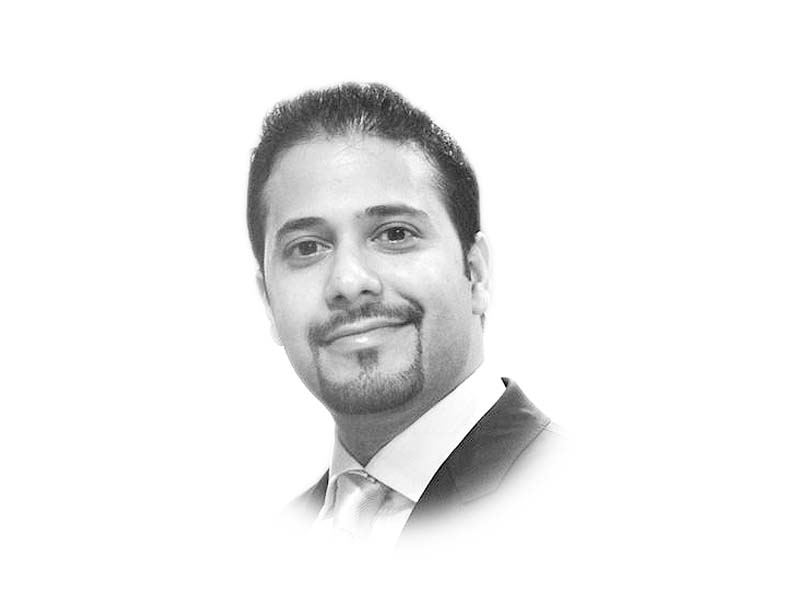
Let’s start by admitting there is an intrinsic problem in the Muslim world. Yes, intrinsic, which means if all external factors — post-colonial resentments, Sykes-Picot border repercussions, Western intervention and support of autocratic regimes/unholy alliances in Muslim states and so on — were wholly subtracted from the equation, we would still be left with a problem. The problem is this: a significant majority of Muslims is simply not ready to reconcile illiberal ideas contained in their understanding of their faith-traditions with the demands of modernity. Consequently, for plenty of Muslims, the whole notion of a liberal secular nation-state — the hallmark of the West — is an anathema. Just take Pakistan, where any mention of the word liberal is guaranteed to raise cortisol levels in many. This is because many people view liberalism as a euphemism for moral debauchery with wings — all the things the scriptures warn about. Then comes the idea of secularism, which is often conflated with atheism and we all know the status of apostates in Muslim lands. Another anathema is the concept of a nation-state, which continues to remain in the minds of many conservative Muslims, a Westphalian construct and therefore un-Islamic. For a long time, some Muslim leaders toyed with other configurations like pan-Islamism, pan-Arabism and so on, but those didn’t work either.
Resolving this issue would necessarily entail the following. Firstly, recognising the issue and calling it as such: that this is a clash of world views and not a clash of civilisations — Islam versus the West. By sticking to the latter, we feed the hateful narrative peddled by both religious extremists on the one hand and right-wing hate groups in the West on the other, forcing progressive Muslims — sandwiched in the middle — to pick a side, compromising the middle ground in the process. Secondly, achieving clarity through dialogue. Progressive Muslims could expound terms like ‘liberal’ or ‘secular’. They could describe classic liberalism as an ideology, which advocates civil liberties and political freedom that is not necessarily tantamount to an orgiastic freefall. The extent to which civil liberties and freedoms are allowed can be debated, but some inalienable rights will need to be laid out, for instance, the right to life, property, universal suffrage and basic freedoms, such as the freedom to practise your religion and gender equality. Likewise, progressives will need to understand that unregulated liberties are no guarantee for a humanist utopia as some places in the West are beginning to find out. As with liberalism, secularism will need to be understood as not another word for atheism, but quite simply a separation of religion from the workings of the state.
What also needs to be understood is the ideological narrative from which groups like the IS draw their appeal. The narrative is simple: the West is evil, arrogant, debauched and doomed to hell, but worry not; to the rescue is the Islamic Caliphate which like earlier times will seize Byzantium and triumph. And in this lies the true danger of the IS, which unlike al Qaeda, seduces believers with the whole image of a recrudescent Caliphate against the demonic West. Schizophrenic though this may all sound to a rational mind, the symbolism of a defiant movement against a wayward Goliath is powerful, especially among those who are on the wrong side of an increasingly mechanistic, uncaring and unjust world. And insofar as this world is dominated by the West, many will continue to heap their grievances — legitimately or illegitimately — on the West, pointing to its double standards, resenting its callousness, and yes, in extreme cases, taking up arms against it even if it means leaving their homes to join a murderous anachronistic Caliphate.
To neutralise the appeal of the IS and its affiliates, some deep soul-searching is required within the Western world. It is not enough for some prominent Europeans or Americans to say that Muslim countries are regressive and easily radicalised while America stays allied to Middle Eastern royalties, and continues to fund apartheid in Israel.
For Muslims, a serious rethink in matters of faith and religious jurisprudence is long overdue and a moral necessity. Stoning people in public squares for the alleged crime of freethinking (thought crime), gagging the media for encouraging critical thinking, stultifying young minds with uncritical group-think — all this is a recipe for disaster. Any more inertia on this front will only lead to greater polarisation in an already fragmented society.
Finally, extremist ideology must be understood as a continuum that starts off as a belief in ideological superiority (e.g., conservatives/literalists), which then seeks expression in a theocracy (e.g., Muslim Brotherhood) and could easily, if suppressed too long, slide into a desire to establish an expansionist global Caliphate (e.g., al Qaeda/IS). The challenge, then, is to stop people like Tashfeen Malik from sliding in the wrong direction along this deadly continuum. And what is not going to help is statements like ‘this is a war with Islam’, nor will dropping bombs in Syria usher in the enlightenment.
Published in The Express Tribune, December 8th, 2015.
Like Opinion & Editorial on Facebook, follow @ETOpEd on Twitter to receive all updates on all our daily pieces.

1722586547-0/Untitled-design-(73)1722586547-0-165x106.webp)


1732326457-0/prime-(1)1732326457-0-165x106.webp)








COMMENTS (15)
Comments are moderated and generally will be posted if they are on-topic and not abusive.
For more information, please see our Comments FAQ